Mercedes EQS SUV vs Porsche Taycan - Differences and prices compared
Compare performance (658 HP vs 1034 HP), boot space and price (95000 £ vs 87900 £ ) at a glance. Find out which car is the better choice for you – Mercedes EQS SUV or Porsche Taycan?
Costs and Efficiency:
Price and efficiency are often the first things buyers look at. Here it becomes clear which model has the long-term edge – whether at the pump, the plug, or in purchase price.
Porsche Taycan has a hardly perceptible advantage in terms of price – it starts at 87900 £ , while the Mercedes EQS SUV costs 95000 £ . That’s a price difference of around 7030 £.
In terms of energy consumption, the advantage goes to the Porsche Taycan: with 16.70 kWh per 100 km, it’s somewhat more efficient than the Mercedes EQS SUV with 19.60 kWh. That’s a difference of about 2.90 kWh.
As for electric range, the Mercedes EQS SUV performs slight better – achieving up to 695 km, about 15 km more than the Porsche Taycan.
Engine and Performance:
Under the bonnet, it becomes clear which model is tuned for sportiness and which one takes the lead when you hit the accelerator.
When it comes to engine power, the Porsche Taycan has a noticeable edge – offering 1034 HP compared to 658 HP. That’s roughly 376 HP more horsepower.
In acceleration from 0 to 100 km/h, the Porsche Taycan is clearly quicker – completing the sprint in 2.20 s, while the Mercedes EQS SUV takes 4.40 s. That’s about 2.20 s faster.
In terms of top speed, the Porsche Taycan performs noticeable better – reaching 305 km/h, while the Mercedes EQS SUV tops out at 210 km/h. The difference is around 95 km/h.
There’s also a difference in torque: Porsche Taycan pulls distinct stronger with 1340 Nm compared to 950 Nm. That’s about 390 Nm difference.
Space and Everyday Use:
Beyond pure performance, interior space and usability matter most in daily life. This is where you see which car is more practical and versatile.
Seats: Mercedes EQS SUV offers somewhat more seating capacity – 5 vs 4.
In curb weight, Porsche Taycan is distinct lighter – 2165 kg compared to 2695 kg. The difference is around 530 kg.
In terms of boot space, the Mercedes EQS SUV offers evident more room – 645 L compared to 407 L. That’s a difference of about 238 L.
When it comes to payload, Porsche Taycan slightly takes the win – 635 kg compared to 570 kg. That’s a difference of about 65 kg.
Who wins the race in the data check?
The Porsche Taycan is far ahead overall in the objective data comparison.
This result only shows which model scores more points on paper – not which of the two cars feels right for you.
Costs and Consumption
View detailed analysis
Engine and Performance
View detailed analysis
Dimensions and Body
View detailed analysis
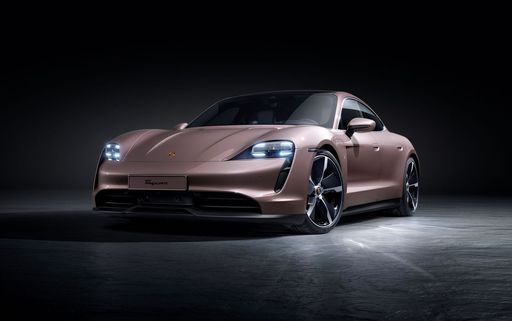
Porsche Taycan
Mercedes EQS SUV
The Mercedes EQS SUV blends limousine-level quiet and luxury with the commanding presence of an SUV, wrapping passengers in sumptuous materials and a futuristic, screen-dominated cabin. It drives with serene confidence and delivers the kind of effortless refinement that makes city commutes and long trips feel like first-class experiences — just be prepared for attention wherever you park it.
details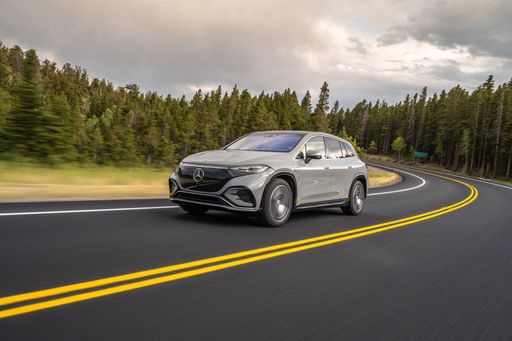
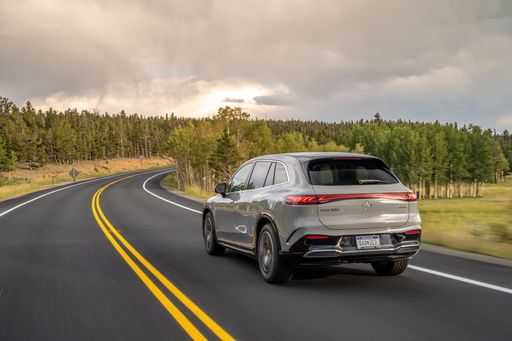
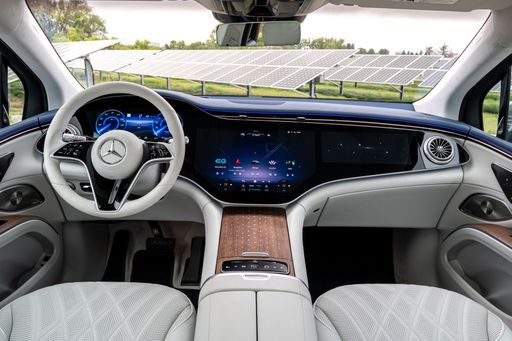
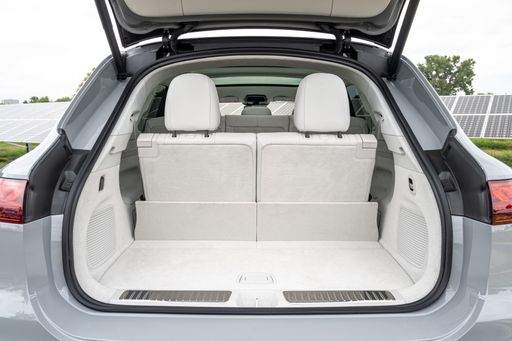
Porsche Taycan
The Porsche Taycan blends Porsche's razor-sharp handling with electric immediacy, delivering an exhilarating, near-silent shove that still feels unmistakably sporty. Inside it's a high-tech cockpit wrapped in premium materials, making it as rewarding to live with day to day as it is thrilling to drive on a twisty road.
details
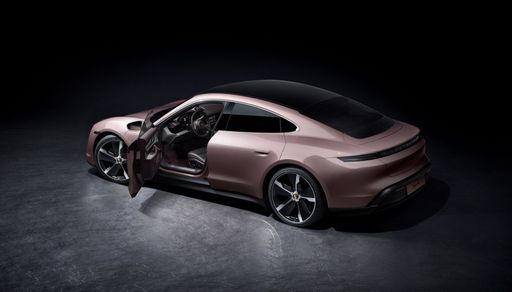
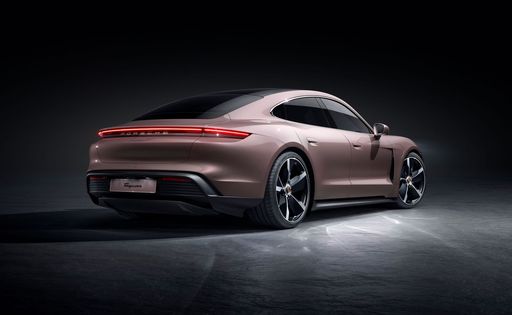
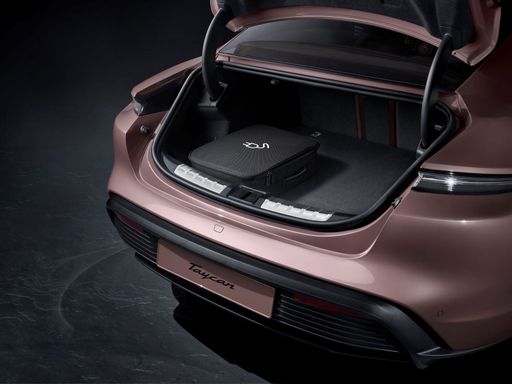
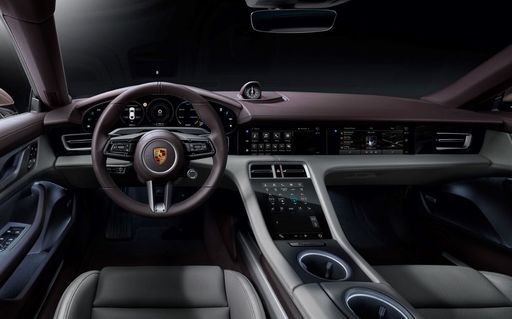
Costs and Consumption |
|
|---|---|
|
Price
95000 - 212100 £
|
Price
87900 - 206700 £
|
|
Consumption L/100km
-
|
Consumption L/100km
-
|
|
Consumption kWh/100km
19.6 - 21.9 kWh
|
Consumption kWh/100km
16.7 - 20.7 kWh
|
|
Electric Range
615 - 695 km
|
Electric Range
552 - 680 km
|
|
Battery Capacity
108.4 - 118 kWh
|
Battery Capacity
82.3 - 97 kWh
|
|
co2
0 g/km
|
co2
0 g/km
|
|
Fuel tank capacity
-
|
Fuel tank capacity
-
|
Dimensions and Body |
|
|---|---|
|
Body Type
SUV
|
Body Type
Coupe
|
|
Seats
4 - 5
|
Seats
4
|
|
Doors
5
|
Doors
4
|
|
Curb weight
2695 - 3075 kg
|
Curb weight
2165 - 2370 kg
|
|
Trunk capacity
440 - 645 L
|
Trunk capacity
326 - 407 L
|
|
Length
5125 mm
|
Length
4962 - 4968 mm
|
|
Width
1959 - 2034 mm
|
Width
1966 - 1998 mm
|
|
Height
1718 - 1721 mm
|
Height
1378 - 1381 mm
|
|
Max trunk capacity
2100 L
|
Max trunk capacity
-
|
|
Payload
425 - 570 kg
|
Payload
175 - 635 kg
|
Engine and Performance |
|
|---|---|
|
Engine Type
Electric
|
Engine Type
Electric
|
|
Transmission
Automatic
|
Transmission
Automatic
|
|
Transmission Detail
Reduction Gearbox
|
Transmission Detail
Reduction Gearbox
|
|
Drive Type
All-Wheel Drive, Rear-Wheel Drive
|
Drive Type
Rear-Wheel Drive, All-Wheel Drive
|
|
Power HP
360 - 658 HP
|
Power HP
408 - 1034 HP
|
|
Acceleration 0-100km/h
4.4 - 6.8 s
|
Acceleration 0-100km/h
2.2 - 4.8 s
|
|
Max Speed
210 km/h
|
Max Speed
230 - 305 km/h
|
|
Torque
568 - 950 Nm
|
Torque
410 - 1340 Nm
|
|
Number of Cylinders
-
|
Number of Cylinders
-
|
|
Power kW
265 - 484 kW
|
Power kW
300 - 760 kW
|
|
Engine capacity
-
|
Engine capacity
-
|
General |
|
|---|---|
|
Model Year
2024
|
Model Year
2024 - 2025
|
|
CO2 Efficiency Class
A
|
CO2 Efficiency Class
A
|
|
Brand
Mercedes-Benz
|
Brand
Porsche
|
Is the Mercedes EQS SUV offered with different drivetrains?
The Mercedes EQS SUV is available as All-Wheel Drive or Rear-Wheel Drive.
